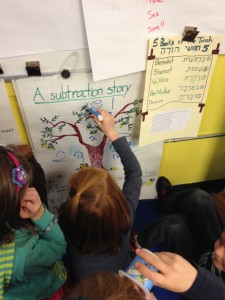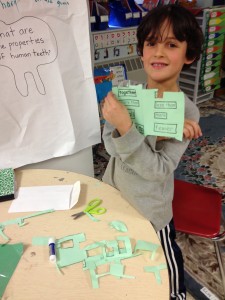First, let’s ask an even more basic question…
Why School?
In a recent article on the excellent education blog, MindShift, author, educational guru, and futurist David Price wrote about how education is changing, and needs to change in the coming years. The whole article is well worth the read but for now, I’d like to consider this bombshell of a statement he presents:
“The gaping hole in the middle of the public debate on schooling is that we can’t even agree on what schools are actually for…This failure to define a clear purpose has fatally held back progress in understanding how we learn best.”
To make matters even worse, many thinkers such as John Taylor Gatto, author of Dumbing Us Down: The Hidden Curriculum of Compulsory Schooling and Seth Godin, author of Stop Stealing Dreams (What Is School For?) believe the true purpose of school is to create obedient workers and complacent citizens for an industrial society!
As parents, I doubt “obedience and complacency” are our highest aspirations for our own children, especially as our country changes from an industrial economy to an economy based on service, innovation, and creativity.
So today, not only is there confusion about what and how we should be teaching, but we as a society don’t understand WHY we should be teaching at all! This astounding lack of purpose has led our education system to lurch in one direction, only to recoil and lurch in another. With no one to take on the deeply challenging question of “Why,” our schools have become a rudderless ship relying on centuries old ideals (the 3Rs for example), and enforced by the least creative or innovative assessment, the standardized test.
These problems exist because politicians make the policies, and their decisions are often driven by fear and competition. Are we fearful of China’s economic growth and feel we need to compete with it? Are we trying to beat Luxembourg’s per capita GDP? Do we need to beat South Korea in math? Do we need to maintain an obedient, hard working underclass? Will we create great thinkers and innovators, or use our businesses to import the finest minds from overseas? The answers to each of these questions result in tinkering of educational policies in order to affect society and the future of our country.
The status-quo drastically increases the risk of making policy decisions that are not in the best interest of children, such as cutting gym, recess, and the arts to focus more on the skills that show success on standardized tests. This puts pressure on teachers and children, damaging students’ creativity, self-esteem, autonomy and self-efficacy.
So it’s our job then, not the government’s, to ask “Why school?”
In my experience, when I have asked parents why they send their kids to school, it’s pretty simple. They almost unanimously say, “We want our children to get the skills and content to live happy, meaningful lives.” (If I’m wrong about that you can let me know in the comments below)
Even when I have asked cynics, the answer ends up the same. Imagine the conversation:
Why do you send your kids to school?
To learn reading, writing, and arithmetic.
Why?
So they can go to Harvard.
Why?
So they can go to the best law school?
Why?
So they can get a great job?
Why?
So they can provide a great life for their families and have every opportunity.
Why?
So they can live happy and meaningful lives!
The answer usually ends up the same, because under all of the ‘What’ and ‘How,’ we parents share a common ‘Why’ for our children and it is beyond Harvard, beyond wealth and beyond keeping the United States the largest economy in the world. In fact beyond any specific outcome we want our children to live happy, meaningful lives.
(I will be talking about how our academic program supports these goals in a later post. Please subscribe below if you are interested in reading more about the profound impact of progressive, constructivist education.)
So why a Jewish School?
If we take the same “why-based” approach to Judaism that we just took to education, we will find something miraculous. Ask yourself, “Why should we teach our children to be Jewish?”
Beyond tradition, beyond guilt or pressure, beyond heaven and hell, and even beyond faith and tradition, we find out deepest desires for our children: To live happy and meaningful lives.
By being part of a community, celebrating life’s joys and tragedies together, and connecting to our past and our future we find joy, direction, and meaning. Our lives are enriched by our ancient tradition and values. We become kinder, more empathetic people by regularly reflecting on our lives through Jewish practice, holidays, and prayer. We don’t live in isolation–we place our lives as part of the greatest project the ever existed, Jewish peoplehood.
Living a Jewish life makes our lives so much richer in the here and now, we naturally want our children to experience that as well.
This is the profound relevance of a Jewish Day School education. Our day schools don’t just provide excellent educations– they provide purpose, community, and meaning. No matter how good the local public or private school, they simply can not match a Jewish Day School’s ability to give students content and skills to live happy, meaningful lives. This is not to say other schools can’t offer any of these skills — they can, through a progressive education focusing on real world problem solving, project based learning, and focusing on creativity, character, and collaboration. But even the best secular school is missing half of the equation.
Next week: What is ‘Progressive Education’ and how does it create a joyous childhood while ensuring academic excellence? Click “Follow” below!
































